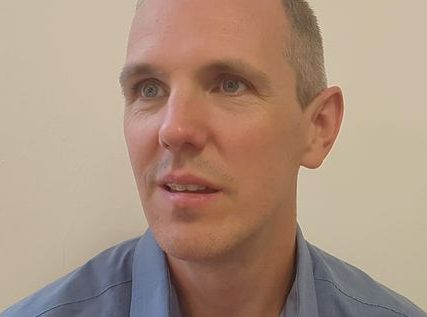
Case Study: Changing leadership culture to drive innovation
July 10, 2019
Your Voice: Collaborating across national borders to grow legacy giving
September 18, 2019The world is changing and so too is what is needed from charity leaders. What can the sector do to nurture fundraising talent and develop the next generation of leaders?
With the rapid evolution of fundraising channels, GDPR impacting how we communicate with supporters and technological advances influencing the way the public interacts with non-profit organisations, the skills needed for fundraising are always in a state of flux. For each charity and each role, that individual skillset is likely to differ. And yet, strong leadership skills are vital for any charity, no matter the size.
Importance of good leadership
“From a fundraising capacity, a good leader is often the difference between an efficient organisation that articulates a strong case for support of its mission, attracting funds from a variety of channels, with one that struggles to break the vicious poverty cycle, sustain itself and meet beneficiary needs,” says Eduard Marček, chair of the Slovak Fundraising Centre and EFA vice president.
“Strong leadership will provide strategic direction, improve efficiency, reduce stress and provide a sense of unity, where everyone feels that they are on the same page, working to clear and consistent goals.”
With charities being heavily focused – and understandably so – on the immediate and continual needs for securing funds, any training and development is more often than not specific to the fundraising task. Relatively little focus is given to leadership skills and this remains one of the biggest challenges for fundraising organisations across Europe.
While this can have a huge impact on the organisation, there is concern too over the impact on leaders at a personal level.
Jan Kroupa, co-founder of the Czech Fundraising Center, says:
“The one thing that charity leaders typically have in common is that they are over-worked and over-loaded. The threat of burnout is very real.
“At a personal level, the real challenge is how organisations support those in a leadership role and encourage them to have a healthy work-life balance. To be a good leader, people have to be able to look after themselves before turning their focus on the organisations they lead.”
Addressing the gap in leadership skills
“The challenge is that seasoned fundraisers, those who are ready to take on a leadership role, are in short supply across Europe,” says Astrid von Soosten, a partner at Brakeley Fundraising Consultants (Germany).
“We tend to have a large number of organisations vying for the very few really experienced fundraisers, but there isn’t enough focus on how we can prepare the next generation of fundraisers to grow and develop.
“There can be quite a lot of churn in the top and lower tier of the fundraising profession, so that means people often rise into positions that they aren’t adequately prepared for; where there is pressure for them not only to be great fundraisers, but great managers and great leaders.
“Conversely, there are a lot of very talented fundraisers stuck because there isn’t a clear path to higher leadership positions. This is much more common in Europe than it is in the US, where career pathways are more clearly established.”
Leadership skills are changing
Of course, it’s not only fundraising that is evolving. A changing world needs different traits from its leaders from one generation to the next.
von Soosten continues: “In the past, leadership training tended to focus on developing fiscal and business management skills for leaders. While that knowledge is important, the truth is that we have machines that can do this far better and crunch the numbers for us. It’s managing and inspiring the people we work with that really matters.
“Leadership is less about authority, but vision. Having the ability to lead and guide others, inspiring them with your shared vision, is different to performing well.”
Increasingly, we can see many of the world’s most successful movements for change actively shy away from a top-down bureaucratic approach, encouraging people to get on board and take part in a way that suits them. Giving individuals the reins, the potential to mould, shape and steer campaigns in line with their interests can be hugely empowering and engaging, helping everyone to feel that they are part of the change and more deeply embedded within the campaign.
The same applies in a leadership context, now more so than ever before. If charities are to attract dynamic and committed fundraisers into the profession, the sector needs to give them an opportunity to make their mark. This requires a willingness to collaborate and cooperate, and knowing when to take a back seat.
“A big lesson for me has been knowing when to lead from the front and when to lead from the back,” says Marcus Missen, director of communications & fundraising at WaterAid. Often the biggest challenge can be knowing how to let go. He adds: “It’s about having a framework where people are free to make decisions for themselves whilst providing them with support and clarity of new norms, values and expectations.”
While leaders need to be solid and dependable, it is just as important that they are adaptable and resilient to the changing internal and external environment, and willing to listen to advice and ideas from others.
An increased focus on leadership for Millennials
Professional development and leadership are becoming increasingly important for the next generation of fundraisers. By 2020, Millennials will dominate the global workforce, rising considerably over the next few years, so there is even greater need to ensure that non-profit organisations can be their employer of choice.
Eva Aldrich, president and CEO of CFRE International, says:
“Employers committed to cultivating the talent of their fundraising team and developing leaders from within are poised to be winners in the Millennial talent war. They want to work with employers that are invested in their career growth and who support their interests with a healthy professional development budget.”
With a drive to upskill, Millennials (born between 1981–1996) actively want to rise within their current workplace. The Millennial Careers: 2020 Vision Report – a global study – found that while Gen X has a reputation for job-hopping, Millennials will stay in post for longer and, when surveyed, 63% said they intend to stay with their current employer for several more years, seeking employers who can offer a long-term, defined career path.
Aldrich adds: “We’re certainly seeing a number of fundraising professionals attain the Certified Fund Raising Executive (CFRE) certification earlier in their careers than before. In the past, becoming a CFRE was viewed as a career milestone to achieve in your 40s or later. Millennials’ ambition and hunger for learning has meant a new wave of fundraising professionals are seeking certification earlier in their careers. In our June 2019 class of new CFREs, almost half were Millennials.
“All signs indicate that fundraising teams offering staff the right mix of challenge, reward, professional development, and recognition will earn the loyalty and admiration of the Millennial workforce.”
Tips for nurturing leadership talent
So what can the sector do to better nurture leadership talent? Charity sector leaders share their tips below:
- Look after your people
“Everyone has the potential to develop strong leadership skills, given a supportive working environment and culture. But this latter point is what is key; you can’t treat employees poorly and then tell them to go out there and make the world a better place. You need to look after your people,” says von Soosten.
- Invest in leadership development
“We need to invest more in developing people within the organisation. This might include formal training, shadowing or mentoring by current leaders or board members. The board can play a key role in inspiring people to develop and in setting the right tone for the next generation of fundraisers,” says Kroupa.
- Model positive leadership behaviours
“Always do what you ask of others. Leaders too easily say ‘take risks’ but the systems they value drive different behaviours. Everyone has a different calibration, so it’s what they see that builds their understanding, not what you say,” says Missen.
- Collaborate to achieve more and learn from one another
“We have much to learn from others within our own organisations and externally, so networking and a willingness to collaborate is key, sharing experiences and ideas about what worked and what hasn’t when it comes to developing future leaders. We should be looking to other charities too, to the private sector and social enterprises, where there are so many leadership success stories,” Kroupa adds.
- Empower future leaders
von Soosten says: “You have to be willing to take a risk and give people a chance to test their skills; both for the organisation and the individual to learn what they are good at. You need to enable and empower them to learn and grow.”
Nicole Etchart, co-CEO of NESsT adds: “Nobody can do everything. A successful leader will recognise this, with the ability to let go and delegate certain things, trusting team members to do their part, giving them the support and opportunity to learn new skills and develop.”
Related features:
Expert view: What charities can learn from social enterprises about nurturing leadership talent
Your voice: We must do more to support fundraisers’ professional development
Case study: Changing leadership culture to drive innovation




